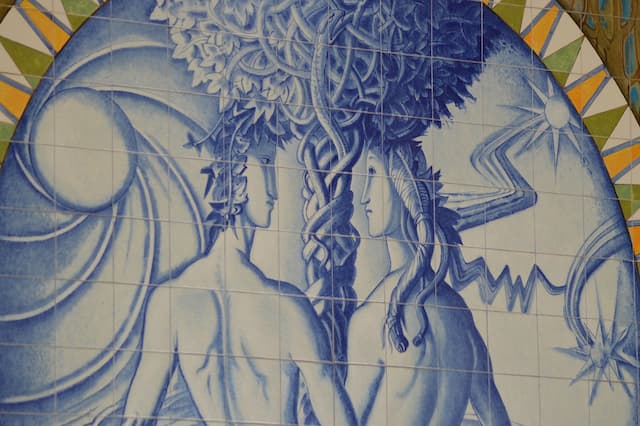What is the kingdom of God?
After eight years on this topic, I’m attempting a simple definition:
The kingdom of God is: earth living as the community under divine governance.
At the most basic level, kingdom implies two entities in relationship: a king, and the community under his reign. In the kingdom of God, God is king, and all the people and creatures on earth live as the community under his governance.
Clear enough? Can we now reframe our message to match what Jesus proclaimed? We would focus on just two things: the community, and the king.
A kingdom is community
For many generations, Western society has been focused more on the individual than the community. The Renaissance celebrated individual achievers. The Enlightenment empowered individual thought. Today we look to psychology more than sociology. Our era prioritizes the individual over community: the dominant message is to be the best “me” I can be, and not let anyone else define me.
The Evangelical church has modified our message to fit this culture. We invented a whole new jargon to change Jesus’ communal gospel (the gospel of the kingdom) into a message about the individual person: personal decision, personal sin, personal forgiveness, a Sinner’s Prayer (singular), inviting Jesus into my heart, establishing personal relationship with God.
These phrases are nothing like the good news Jesus announced. He proclaimed a different gospel: good news of community under God, the gospel of the kingdom.
A kingdom has a king
One reason we changed the message is that people today are not keen on having a king. We’re democratic, and distrustful of power.
Don’t misunderstand: I’m not suggesting Australia reject democracy and appoint a king. There are very good reasons why we have developed a political system where power is distributed rather than concentrated in the hands of a few. Humans are corrupted by power, and the benefit of a democracy is that the corruption must be collusive before it becomes systemic.
The story of the Bible is that we got ourselves into this mess by rejecting our true sovereign, the one who can handle power, the one whose kingdom we were designed to be. The creatures decided to take God’s power into our own hands, to determine good and evil for ourselves (Genesis 3). The consequences were devastating: taking power over his brother’s life, Cain ends up away from the community God rules, constructing a city where justice relies on human power — unrestrained revenge (Genesis 4). Eventually the violence corrupts everyone, everything, the whole earth (Genesis 6).
So how does our heavenly sovereign restore the devastated earth as his kingdom? How does he take us from being a violent, power-obsessed mob in rebellion against our true king, and restore us as the community he envisioned — a world that honours the Father who gave us life, and enacts his will on earth as it is in heaven?
That, my friends, is the story of the whole Bible. It starts with a promise to Abraham of a sample nation under God’s reign so the nations can see the blessing of divine rule. The prototype kingdom of God becomes a reality when God delivers them from Pharaoh and establishes them under his Law, in the presence of the king enthroned between the cherubim.
Briefly, God permitted his kingship to be represented by human kings (the house of David), but human power was unable to sustain the nation. Israel ceased to exist as a kingdom, but Isaiah promised good news to the scattered exiles: God himself would return to reign (Isaiah 40:9-10 etc).
The mechanism by which God restores his reign is mind-blowing. Instead of defeating his enemies the way human rulers do (war, conquest, siege, killing), God comes to us as a son of David living under foreign occupation. He comes to his capital to confront evil, but evil is reigning there so they put God’s anointed ruler to death. His kingship is vindicated on the third day when God’s Spirit enters his deceased body, raising him out of death, declaring him to be the Son whom the Heavenly Sovereign has appointed to rule the earth.
Other kings may claim power, but Jesus is king of kings. He is the Christ (God’s anointed ruler). He is the Son of the heavenly sovereign, the Son who re-established heaven’s reign (the kingdom of heaven). As the community under his reign, we recognize him as Lord. That’s the declaration we’re making when we say “Jesus Christ is Lord.”
King and community
The kingdom has a king. We proclaim him, calling people to turn from rebellion (repent) and give him allegiance (faith).
Don’t reduce that message to individual decision-making. The king calls us to live as community under his kingship. On his watch, the poor who have missed out under previous regimes receive the kingdom. The meek who’ve had no power become managers of the earth. Those who have been ostracized from community receive forgiveness, so they can take their place. Jesus enacted the good news by healing the sick and restoring those oppressed by evil. He is restoring the earth as the community under God’s kingship — the kingdom of God.
The gospel doesn’t call us to make individual decisions. It calls us to be the community of the king.
Seeking to understand Jesus in the terms he chose to describe himself: son of man (his identity), and kingdom of God (his mission). Riverview College Dean
View all posts by Allen Browne



